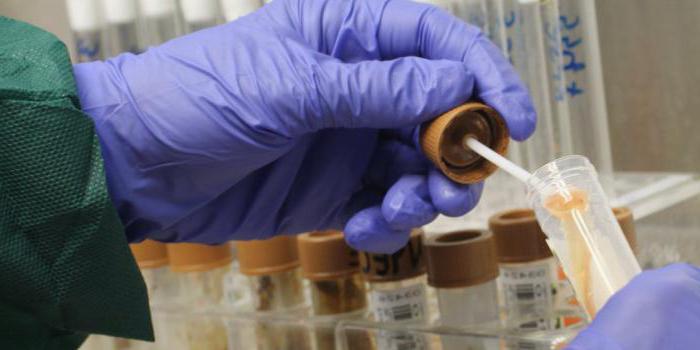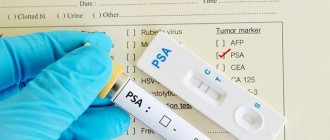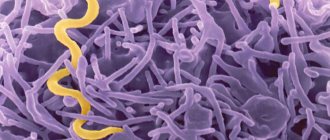Laboratory testing of carbohydrate content in stool is used to diagnose lactase deficiency - the process of impaired digestion of milk sugar (lactose).
Cost of stool analysis for carbohydrates: 450 rubles
Dairy nutrition is the basis of the diet of children in the first year of life. Milk sugar, or lactose, is the main carbohydrate in milk. The process of breaking down (digesting) lactose is carried out in the intestines using an enzyme called lactase. If milk sugar is not completely broken down and remains in large quantities in the intestinal lumen, the child may experience diluted stools, increased gas formation, and abdominal pain. There may also be a tendency to regurgitate due to increased intra-abdominal pressure.
Lactase deficiency (LD) can be a congenital or acquired condition.
In peoples who historically did not consume milk, congenital, genetically determined, lactose intolerance is quite common.
For the Russian Federation, the share of such cases is small and amounts to approximately 16-18%.
In children of the first year of life, the most common causes of insufficient activity of the enzyme that digests milk sugar are the functional immaturity of the digestive system; dysbiotic disorders (dysbacteriosis), infections and other factors also play a role.
Typically, lactase deficiency in children is temporary (transient) in nature and, subject to a competent approach, can be corrected.
General information
Impaired absorption of carbohydrates in the small intestine - malabsorption - is a sign of enzymatic deficiency, which can be either hereditary or acquired.
The most common type of malabsorption is lactase deficiency - lactose intolerance, i.e. the body's inability to break down and absorb milk sugar. Congenital lactase deficiency manifests itself already in the first months of a child’s life and is characterized by a sharp delay in weight gain. In adulthood, the acquired form is most often diagnosed. Less commonly observed is a malabsorption of sorbitol alcohol, fructose, trehalose, and sucrase-isomaltase.
Regardless of the type of enzymatic deficiency, the accumulation of large amounts of undigested carbohydrates in the intestines manifests itself in the same way:
- spasmodic pain (colic) in the abdomen, provoked by impaired intestinal motility;
- increased gas formation due to increased fermentation of bacterial microflora;
- diarrhea, the cause of which is the retention of a large amount of fluid in the lumen of the intestinal tube (osmotic effect);
- signs of intoxication of the body: headaches and dizziness;
- general weakness and lethargy;
- nausea and vomiting;
Malabsorption may also be temporary. Often this condition develops after an intestinal infection or an acute inflammatory process, serious operations on the gastrointestinal tract, etc. An ill-designed diet can also affect the speed and extent of carbohydrate absorption. For example, increased sorbitol content in familiar foods can impair the absorption of fructose.
Content
If your baby is worried about his tummy, his stool is loose, and his weight gain is slow, your pediatrician will most likely recommend a stool test. What can a stool test for carbohydrates tell us about in infants and how to collect it correctly?
- Intestinal dysbiosis in infants: causes, symptoms and treatment features
- Stool in a breastfed baby: normal and main problems, differences in stool during artificial feeding
- Diarrhea in a breastfed baby: is it dangerous?
- How to give paracetamol to a baby with a high temperature
- Allergies in infants: how to recognize and overcome them?
- Feces with mucus in a baby: should you worry?
It is known that a child’s gastrointestinal tract continues to mature after birth. This does not happen immediately - during the first 3 years of life. But the most active work occurs during the first year. What is easily digested by an adult body may be too heavy for a newborn due to an immature enzymatic system. Therefore, the nutrition of a newborn is as gentle as possible. Especially in the first months - it consists only of breast milk, which is easily digested by the body.
But the composition of mother's milk is gradually changing - the young mother is on a strict diet immediately after giving birth, but after a month she can gradually expand her diet. And, of course, this affects the chemical composition of breast milk. The baby’s body does not always have time to adapt to these changes, which is why difficulties may arise with the absorption of lactose. As a result of stagnation of milk in the gastrointestinal tract, its fermentation can begin - and this not only causes obvious inconvenience to the baby (bloating and colic), but also interferes with the absorption of beneficial substances from milk, which are so important for the normal well-being and development of the child.
Analysis of stool for carbohydrates will help you find out what the real situation is, how critical the problems with the gastrointestinal tract are and what to do next.
Indications for analysis
The analysis is interpreted by a gastroenterologist, therapist, pediatrician or general practitioner.
- Chronic diarrhea and digestive disorders in adults;
- Headaches, apathy and weakness, lack of body weight,
- Stomach disorders without established causes;
- Previously identified malabsorption in adults;
- Diagnosis of congenital lactase deficiency in infants under one year of age;
- Lack of required weight gain in newborns.
An analysis of carbohydrate content in feces is a fairly informative diagnostic test. However, based on its results, only the total (total) amount of all carbohydrates can be assessed. It is not possible to calculate the concentrations of lactose, fructose, glucose and other sugars separately.
How to collect material
The easiest way is to wait until the baby poops in the diaper and collect the required amount of material from him. But this is not correct: such an analysis will not be informative. To conduct a study on carbohydrates in a baby's stool, you need predominantly the liquid part of the stool, and in a diaper it is quickly absorbed. Just like in a diaper.
It is best to use regular oilcloth to collect feces from a baby.
For the reliability of the analysis, you must adhere to the following recommendations:
- The baby's meals the day before should be normal - in the standard mode, without introducing new foods.
- The container must be sterile - an excellent solution would be special containers for collecting feces, which are now sold in every pharmacy.
- Evacuation should be natural - without additional stimulation.
After collecting the material, it should be submitted for research within 4 hours.
Norm of carbohydrates in feces
| Patient age | Amount of carbohydrates |
| Children under 1 year | 0 – 0,25% |
| Children over 1 year old and adults | Not detected |
Note: in children of the first year of life the following deviations from the norm may be observed:
- 0.3 – 0.5% (insignificant);
- 0.6 – 1% (average);
- more than 1% (significant).
Factors influencing the result:
- Violation of the rules for preparing for analysis;
- Errors when collecting biomaterial;
- Features of the daily diet;
- Patient's age;
- Genetic factors and family history;
- Intestinal infection or inflammation;
- Taking prebiotics, antibiotics and other drugs.
Bad results: what to do?
If a test for carbohydrates in an infant shows that food is not absorbed enough, measures must be taken. But which ones? First of all, if the basis of nutrition is breast milk, the mother must go on a diet. The exact diet will be prescribed by your pediatrician. This will make the lactose in the milk easier to digest.
If the baby is more than 3 months old, and the deviation of carbohydrates from the norm is high, the doctor may recommend stopping breastfeeding altogether and replacing it with a medicinal formula until the situation returns to normal. In this case, if the mother wants to help the baby, the recommendations must be followed. Don't be upset: you can continue breastfeeding even if your baby doesn't eat milk for a long time. It just takes more effort. On the other hand, many mothers of “artificial” babies have found many advantages in this method of feeding.
If the baby is older than 6 months, to normalize the level of carbohydrates, it is worth introducing lactose-free foods into his diet: vegetables, cereals, fruits. Also, if possible, replace cow’s milk with goat’s milk when preparing porridge.
The results of the carbohydrate analysis, even if they are not ideal, are not a death sentence. This is just evidence that the baby needs help to teach his body to work correctly.

Quite often, breastfed children experience digestive problems. Diagnosis will require stool test results to determine the amount of carbohydrates.
Carbohydrates in feces are increased
- Enzyme (lactase) deficiency;
- Chronic diseases of the small intestine: Crohn's disease (granulomatous inflammation of the gastrointestinal tract);
- celiac disease (impaired breakdown of gluten), etc.;
How to prepare for research?
Mothers should not change anything in their diet. Some try to consume less dairy products, believing that they may distort the result. But the error in this case will be insignificant. The child’s diet also does not need to be changed. The most difficult thing is to correctly collect feces for carbohydrates. The volume of the material under study is not less than 1 tsp. Feces should not be collected from diapers or diapers. It is better to hold the child in your arms for a while, spreading your legs. It is necessary to pay attention in advance to how often the baby goes to the toilet, and try to collect the stake at this time. It is desirable that the biomaterial be liquid.
Feces should be placed in a special container (preferably a sterile container, which is sold in every pharmacy) and taken to the clinic. Biomaterial can be stored in the refrigerator for no more than 10 hours. It is good if the analysis is deciphered within the first 4 hours after stool collection.
Preparing for analysis
To obtain reliable research results, the following preparation rules must be observed:
- 3 days before the analysis, exclude the use of rectal suppositories and cleansing enemas;
- a week before the procedure, stop taking medications: those that affect the character of stool (antidiarrheals, laxatives);
- increasing peristalsis (pilocarpine, belladonna);
- containing coloring pigments (barium, bismuth, iron, etc.);
- exclude colored (red and green) vegetables/fruits, juices from them, ketchup and tomato paste, alcohol from the diet;
A mandatory condition is not to undergo diagnostic tests with contrast (X-ray, CT, MRI, etc.) 2-3 days before the analysis.
What is a carbohydrate test?
Most often, a fecal analysis for carbohydrates in infants will be necessary for a pediatrician to find out the cause of the problem in the infant’s digestive system. Especially if it is necessary to make the most accurate diagnosis.
This may require you to undergo a coprogram. This is the name of a special study of stool analysis, which makes it possible to find out the state of the infant’s digestive tract.
Most babies are fed breast milk. It is the only way to feed a baby that his digestive system can absorb. However, if a baby has a problem with milk absorption, then you should consult a doctor.
In this case, he will be prescribed a stool test for carbohydrates. Based on this study, a diagnosis will be made and treatment will be prescribed.
Fecal analysis of an infant allows you to find out whether there is sugar in the feces. To do this, the content of various types of carbohydrates will be determined. A stool analysis will show the presence of lactose with all its breakdown products.
All these parameters will be checked against medical standards, which makes it possible to make an accurate diagnosis, and therefore prescribe the correct treatment.
Studying the contents of a stool test for dysbacteriosis allows us to obtain information about the state of the gastrointestinal tract, as well as whether the processes associated with the breakdown and absorption of carbohydrates or the development of dysbiosis are disrupted in the infant. To obtain the result, examinations will be carried out using the Benedict method.
Treatment options
What to do if the test result for lactose intolerance is positive? There is no need to panic: you need to be normal about the fact that children often get sick. Parents will have to deal with many diseases, so the main thing in this case is to find an experienced specialist who can tell you how to restore enzyme production.
If the illness is mild, the mother will be asked to continue breastfeeding, but consume as little dairy products as possible. First of all, you need to give up cow's milk, which reduces the production of lactase in the child's body. The baby may be prescribed medications containing the enzyme missing in the body. And in difficult cases, the doctor will advise you to completely abandon dairy foods and switch to dairy-free formulas, for example, soy-based. If you follow all the recommendations, after just 1 year, a stool test for carbohydrates in infants may show normal values. In some cases, this period extends for 2-3 years. But there are cases when the lactase level is not fixed even at a later age. Then the doctor assumes the presence of hereditary intolerance to dairy products. In this case, parents need to find out what diet should be followed throughout the child's life.
Lactase deficiency is not a death sentence. Today, poor environmental conditions often cause more and more children to suffer from this disease. But with a timely diagnosis, proper treatment and a well-chosen diet, the baby will be able to eat well and will be no different from his peers.
In infancy, there are often digestive problems, to determine the causes of which children are prescribed various tests. One of them is the determination of carbohydrates in the feces of infants.








